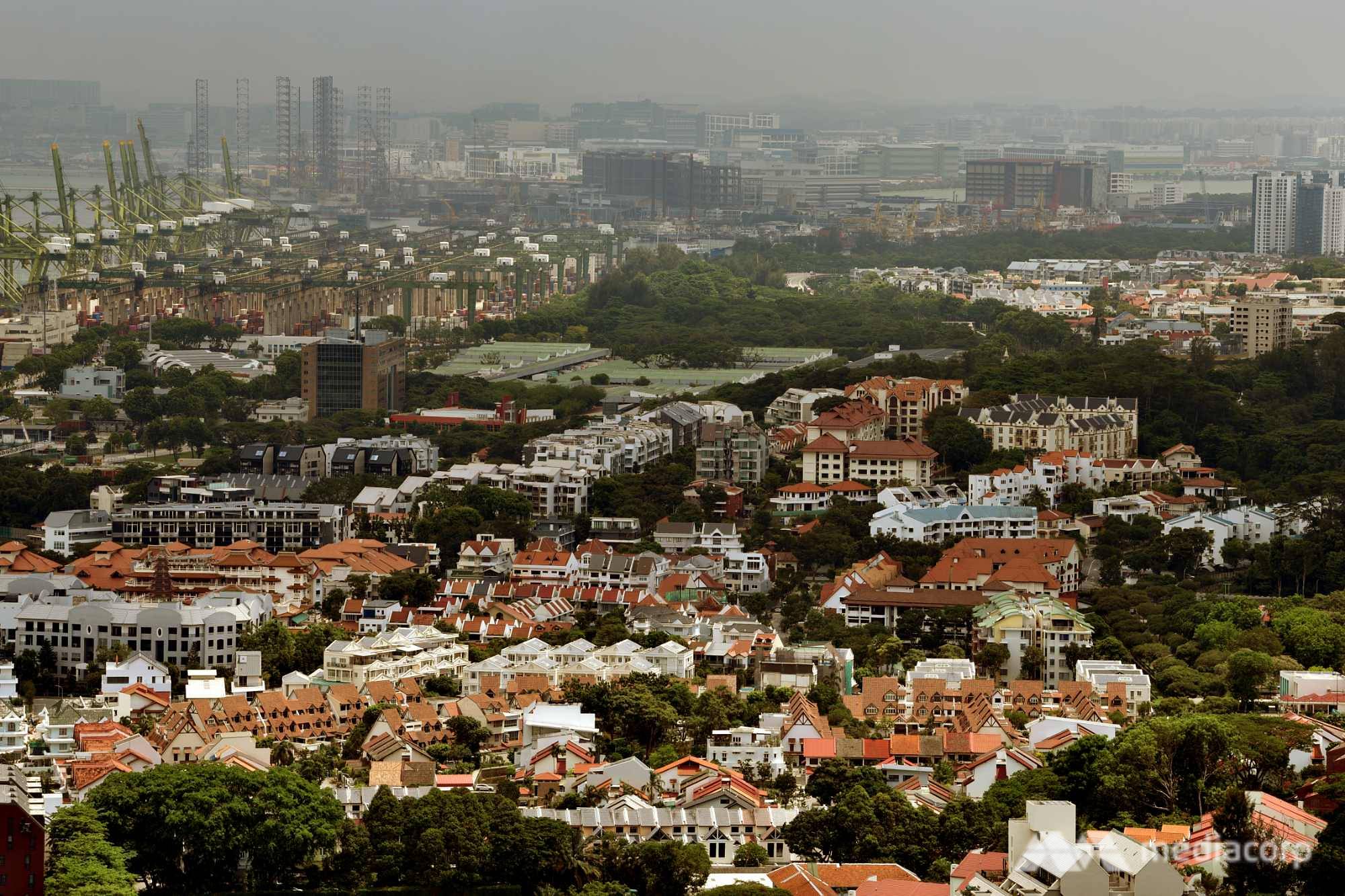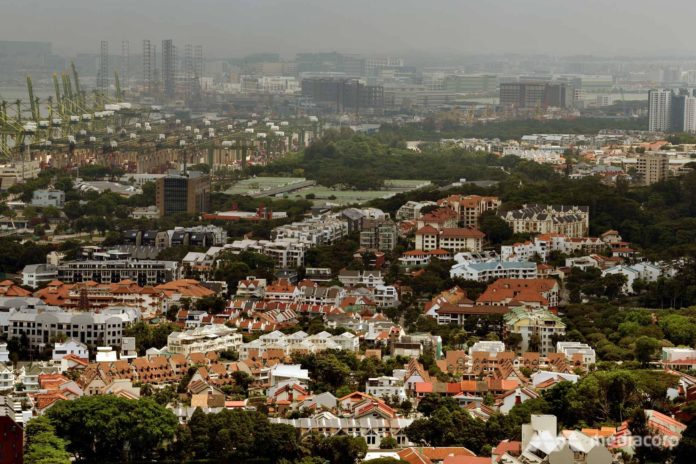SINGAPORE: Property buyers who have entered into agreements to purchase or lease homes from developers can now apply for temporary legal protection should they face difficulties making payments because of the COVID-19 pandemic.
The move is an extension of the COVID-19 (Temporary Measures) Bill passed last month, which provides temporary relief from certain legal action for non-residential leases, construction or supply contracts, event agreements, tourism-related contracts such as tour packages as well as secured loan facilities.
The relief measures, which took effect from Apr 20, will last for six months in the first instance.
With the extension, which came into effect on Wednesday, the Act will now cover buyers who have entered option to purchase agreements, sale and purchase agreements or agreements for lease for residential properties, said the Ministry of Law (MinLaw) on Wednesday (May 13).
The extension covers only contracts between buyers and private developers or the Housing & Development Board, said the Law Ministry in a press release. It does not cover agreements made between individuals.
An option to purchase agreement is granted by a housing developer to a buyer for the purchase of residential property. It generally provides for the payment of a certain portion of the purchase price when the agreement is exercised.
A sales and purchase agreement or agreement for lease is granted by a housing developer to a buyer for the sale and purchase of residential property.
“MinLaw is including these two contracts in the list of contracts covered by the Act, to provide relief in such situations,” said the ministry.
“Like other contracts covered by the Act, these contracts must have been entered into before Mar 25, 2020, with contractual performance due on or after Feb 1, 2020.”
READ: COVID-19: Construction projects could be delayed months, as contractors fear manpower crunch when clearing backlog
The Law Ministry said it had received feedback that some buyers who had entered into such agreements faced difficulties making payments because of COVID-19, and stood to lose their booking fees or deposits.
But before applying for relief, buyers should first seek an extension from the developer, MinLaw said.
If the two parties are unable to agree on the terms of the extension, or if negotiations with the developer are not possible, the buyer may serve a Notification for Relief (NFR) on the developer to enjoy relief under the Act.
“Relief applies where a contracting party is unable to perform a contractual obligation due to COVID-19,” said the ministry, adding that the buyer must serve a notification on the developer before it can be applied.
READ: S$16 billion in COVID-19 support given out as of May: Indranee Rajah
In the case of an option to purchase agreement, the developer will then be prohibited from withholding or forfeiting any part of the booking fee paid under the agreement during the relief period.
In the case of a sales and purchase agreement or agreement for lease, the developer will be prohibited from terminating the agreement on the basis of the buyer’s non-payment.
A housing developer may also serve a notification to seek temporary protection from being sued during the relief period, if it is unable to perform any contractual obligation due to COVID-19, the Law Ministry said.

File photo of private houses in Singapore (Photo: Jeremy Long)
“The conditions and framework for how disputes are to be resolved under the Act will apply. We encourage parties to discuss and reach a mutual agreement,” MinLaw said.
If the parties are unable to reach a compromise even after a Notification for Relief is served, either party may make an Application for an Assessor’s Determination, it added.
“The Assessor will consider both parties’ arguments and will seek to achieve an outcome that is just and equitable in the circumstances.”
INCREASES IN INTEREST RATE, CHARGES PROHIBITED
As part of the announced changes on Wednesday, additional actions relating to the “unilateral increase of charges” will also be prohibited.
“Since the Act commenced, MinLaw has received queries and feedback that some parties are seeking to impose additional interest and charges for late payment that are not provided for in their contracts, even though an NFR has been served,” the ministry said.
“Among other things, the Act gives affected non-performing parties temporary relief from making payments.
“In such a situation, landlords are not permitted to unilaterally increase interest rates or impose new charges on delayed payment, in order to prevent or discourage parties from seeking the relief granted under the Act.”
READ: Singapore new private home sales plunge 12% in the first quarter as prices dip
READ: HDB resale transactions down 7% in Q1, prices remain flat
After a NFR has been served, it is prohibited to increase of any charges or interest rate payable under the contract, unless the charge or interest rate increase was specified in the contract or was a result of a formula or reference rate.
It is also forbidden to impose new charges under the contract or require that a security deposit be replaced by the non-performing party without their agreement.
“HIGHLY HELPFUL”
The Singapore property market has been adversely impacted by the COVID-19 pandemic, with the Government announcing last week a slew of temporary relief measures for property developers and individuals affected by the outbreak.
Wednesday’s announcements were welcomed by property analysts as a “highly helpful and timely” move.
Private property in Singapore (File photo: Gaya Chandramohan)
“By offering relief to property buyers who have difficulty in exercising their option to purchase or fulfilling obligations of their sales and purchase agreement, this is actually beneficial to developers – because they will not end up in conundrums with such buyers who faced difficulties in financing their property going forward,” said property analyst Ong Kah Seng.
“It provides a clearer way for buyers to exit and how developers can efficiently receive back that returned unit – that can ultimately still be sold if competitive pricing is adopted amid the recession,” he added.
“As for lease agreement, the relief is helpful for tenants who indeed have to be repatriated due to corporate downsizing amid the recession. Landlords who face this issue can however quickly refund them initial deposit and move on to rent out their property to other interested tenants,” said Mr Ong.
The Real Estate Developers’ Association of Singapore (REDAS) said the relief measures will help genuine buyers during these challenging times.
“REDAS shares the Government’s views that contracting parties face considerable constraints on many fronts.
“The enhanced COVID-19 (Temporary Measures) Act will help to provide relief to affected genuine buyers from financial commitments and protection as well as time to reach an amiable settlement with developers in good faith.”
BOOKMARK THIS: Our comprehensive coverage of the coronavirus outbreak and its developments
Download our app or subscribe to our Telegram channel for the latest updates on the coronavirus outbreak: https://cna.asia/telegram





